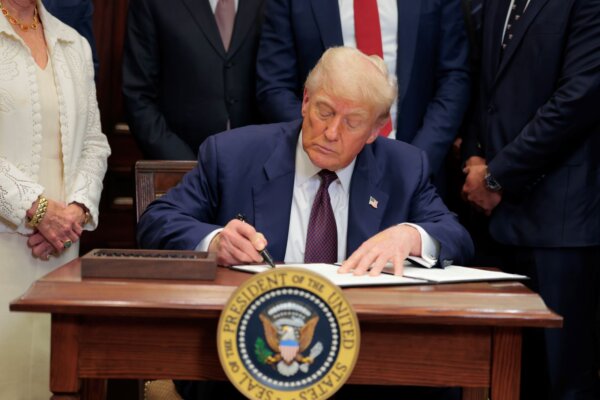Referring to antitrust laws as the “first line of defense against the monopolization of the American economy,” the order sought to lower prices on goods and services such as broadband internet, airline baggage fees, and prescription drugs by promoting competition.
Biden’s order had the stated aim of enforcing “the antitrust laws to combat the excessive concentration of industry, the abuses of market power, and the harmful effects of monopoly and monopsony,” including in sectors such as labor and health care.
It stated that a pattern of corporate abuses, from excessive airline fees to huge mergers, was raising costs for consumers. It was spearheaded by top Biden economic officials who were critical in establishing the Consumer Financial Protection Bureau under President Barack Obama.
“Instead of an overly prescriptive and burdensome approach, the Division commends the Administration for promoting competition via tailored executive orders that call for lowering drug prices and opening regulatory barriers to competition,” the statement reads.
The Antitrust Division stated that it has made progress in streamlining the Hart-Scott-Rodino Act review process of corporate mergers, while reinstating more frequent application of targeted and well-crafted consent decrees.
“America First Antitrust focuses on empowering the American people in the free markets, not enabling regulators and bureaucrats to prescribe outcomes,” Assistant Attorney General Abigail Slater of the Antitrust Division said in the statement. “We are unleashing the new American Golden Age through antitrust enforcement that removes barriers to innovation and opportunity and limits regulatory burdens on free competition.”
The division said it will “use this opportunity to continue its work to recalibrate and modernize the Federal approach to competition policy to suit the needs of [the United States’] dynamic and innovative economy.”











